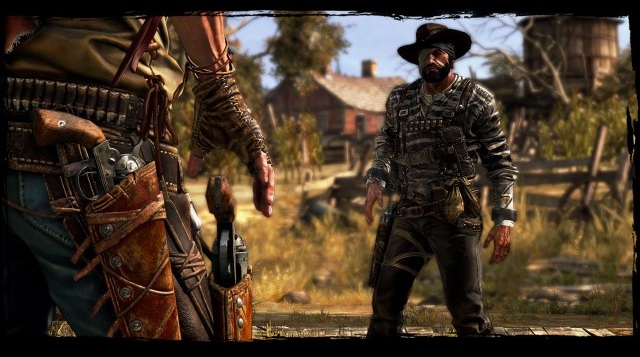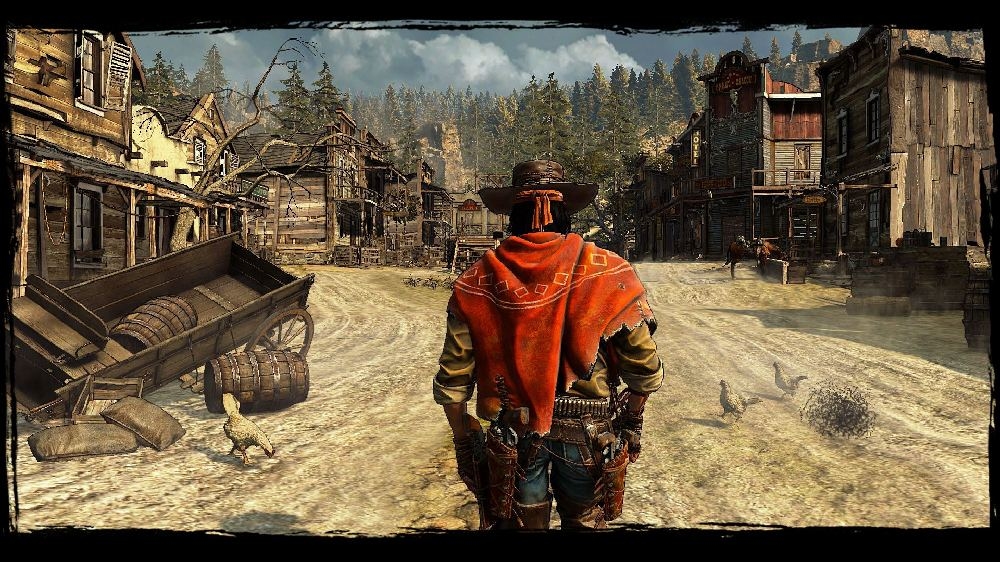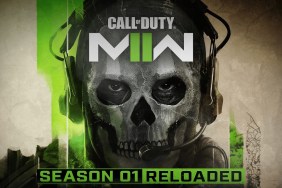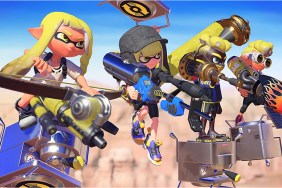Gol Darnit if'n it couldn't make muster what it needed to get up the blood of this ol' cowpoke.
This week I played three games. Two of those games exemplified what I love in gaming, the ability of a piece of media to create emotional resonance through gameplay experiences. Playing Bioshock Infinite put me in the head of Booker DeWitt, whose journey was as much psychological, emotional, and metaphysical as it was narrative. Playing Dishonored not only offered me different choices in how to play through a mission, but also changed the way the environments reacted based on my play style, creating an immersive, dynamic world.
The other game I played was Call of Juarez: Gunslinger. Now, I'm aware that comparing a downloadable game to two fantastic triple-A titles is a cheap shot, but so is a lot of Gunslinger, an on-rails shooter that pretends not to be, has sluggish aim that requires too much precision; and includes an overly intricate dueling mechanic as a centerpiece.
You play as Silas Greaves, an aged bounty hunter who wanders into a saloon and shares his story with the patrons, replete with Old West shit-talkin' colloquialisms. As he tells the story, you pilot a younger version of the man through his tall tales.
Gunslinger's best qualities are its presentation. The cel-shaded visuals complement the narrative, which is told in comic-book panels between gameplay sections. The bright colors and cel-shaded look are appropriate for the hoaky story, which throws the kitchen sink full of Old West clichés at the audience. Gunslinger's best innovation is the use of the storytelling mechanism to change the environment during gameplay itself. In the middle of a mission, Silas will add that it was fall and the trees were beautiful, and the trees will suddenly grow from the ground to support his changes in the story.
This can also add a change to gameplay. Silas may wait until you've completed a task to provide an escape route for his younger self, or may suddenly call in Apache warriors to the field of battle out of nowhere, to see if the bar room audience is listening. This is fun, and in keeping with the hoaky storytelling style. It also allows Silas to take on just about every famous gunfighter you can imagine from the Old West, from Billy the Kid to Butch Cassidy.
Sadly, the game behind it doesn't live up to the tall tale being told. Gunslinger pretends to give you some autonomy in how you navigate the environments, but if you move in another direction it pops you back onto a set path for "moving away from the story." That's when it's not tightly controlled corridors or rooftop chases kills you, perhaps from a laughably shallow fall. The center of your targeting reticule or the top of your ironsights (if zooming in) must be exactly, to a pixel, where you are aiming or you will miss. This problem is compounded by sluggish aim.

So you move down the set path and hide behind cover, then pop out and shoot opponents who are using cover themselves. It kind of reminds me of Time Crisis, if you had to move the character in and out of ducking behind something yourself. This is eventually capped with a battle with a gattling gun, where you must dash from cover to cover just to get close enough to harm the person using it, or with a showdown duel with one of those famous historical gunfighters.
Perhaps the most perplexing and frustrating part of Call of Juarez: Gunslinger is its dueling system. To duel properly, you need to move a target, that zeroes in over time, on top of your opponent—who may pace or shift in place—making it hard to keep them centered. At the same time you need to monitor your draw hand and keep it close to your gun to increase draw speed. However, that by itself is relatively simple: the game continuously adds mechanics, requiring more and more multitasking with a multitude of button presses that quickly become frustrating. Let me run you through a duel from the end of the game:
You're in a stand-off against two opponents. You use the right thumbstick to position the target over the one looking at you while using the left thumbstick to move your hand over your gun. The target slowly begins to hone in but stops as your opponent looks away from you to stare at the other gunfighter, who now looks at you and whom you must switch to by using the right or left bumpers to continue to increase your focus. This throws both your target and hand off, and you must reposition them while watching to make sure your opponent doesn't pace or shift, while the target becomes more difficult to control the closer it gets to your opponent. You have to shift several times between the two gunfighters until at last you hear a heartbeat, which means you can draw and fire, but drawing before they do means you get a penalty for dueling dishonorably. After a few more shifts (which keep throwing your position off), one of them finally goes for his gun. You have a split second to click your right trigger to activate the draw, then draw by pulling your left stick down to move your hand to the gun, and then up to bring it back up, while at the same time positioning your target again with the right thumbstick (because the crosshairs have blown wide during the draw and need to hone in for precision), then fire on one opponent using right trigger again, then use the bumpers to move back to the other opponent and fire on them. (Whew!)
I have kept this all one giant paragraph and called out button-presses to give an idea of how convoluted and confusing this is. It's ambitious, but to the point where it stops being fun and becomes extremely frustrating. Dying and having to play the same duel over an over at the end of a level until you master its new mechanic quickly becomes tedious and overbearing.

I'm actually generally less demanding and more cheerleading towards value titles, but Gunslinger tries to do too much and delivers too little. Perhaps if it had refined its scope, or focused on just one of its core gameplay ideas and polished it, then it would have worked better.
Call of Juarez: Gunslinger has some good ideas, especially the playful storytelling and how it directly affects the gameplay. And it's only $15 as a digital title. However, it gets bogged down with its on-rails confinement, its slow, overly precise aiming, and its tedious dueling system.
-
Fun storytelling
-
Narration changes gameplay
-
Value title
-
Stiff aiming requires too much precision
-
Convoluted duel system
-
On-rails, though it pretends not to be











